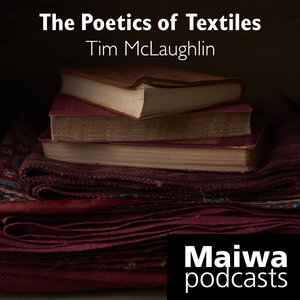
2009 Maiwa Textile Symposium
An Exhibition of Cambodian Ikat
The Institute for Khmer Traditional Textiles
No Charge - Please RSVP
Introduced by Morimoto Kikuo
“In the past, villagers had only to reach out their hands to find lac nests or abundant plants to serve as materials for natural dyeing. The revival of the natural environment for the lac insect amounts to the revival of the colour of ikat... .
“Our purpose will be achieved if we can revive and perpetuate the tradition and experience of those people who viewed the light of the moon on the Bayon over the course of many hundreds of years, and if we can pass these down to the next generation.”
From Bayon Moon: Reviving Cambodia’s Textile Traditions by Morimoto Kikuo.
All pieces will be available for sale.
MORIMOTO KIKUO
Morimoto Kikuo was born in Kyoto, Japan, in 1948. In 1975, after a five-year apprenticeship, he started his career in yuzen, the Japanese textile technique of painting and dyeing kimono fabric. In 1980 he made his first visit to Bangkok where he discovered Khmer traditional silk ikat textiles at the National Museum.
In 1983, Morimoto moved to Thailand to serve as a volunteer in refugee camps in the northeast. In the following years he worked encouraging natural dye traditions and in 1990, as a collaborating researcher for The Textile Museum (Washington, DC), he compiled a report entitled “Traditional Dyeing Methods in Northeast Thailand.”
In 1995, Morimoto was asked by UNESCO Cambodia to serve as a consultant for the revival of traditional silk weaving. He remained in Cambodia where he started another project, this time to raise silkworms in Takaor village, Kampot province.
In 1996, Morimoto founded IKTT (the Institute for Khmer Traditional Textiles) in a suburb of Phnom Penh. Four years later the Institute moved to Siem Reap and added a workshop for weaving and dyeing with the goal of enabling elder craftspeople to hand on their skills to younger generations.
In 2002, Morimoto purchased five hectares of land north of Angkor Wat to begin his next project, the establishment of a self-sufficient weaving village. He now lives and works there as he oversees a project named “Wisdom from the Forest.” The village grows locally everything needed (dyes, cotton, silk) to create traditional Camodian Ikat. In 2004, Morimoto received a Rolex Award for Enterprise.









0 comments
We moderate comments to keep posts on-topic, avoid spam, and inappropriate language. Comments should appear within 24 hours.